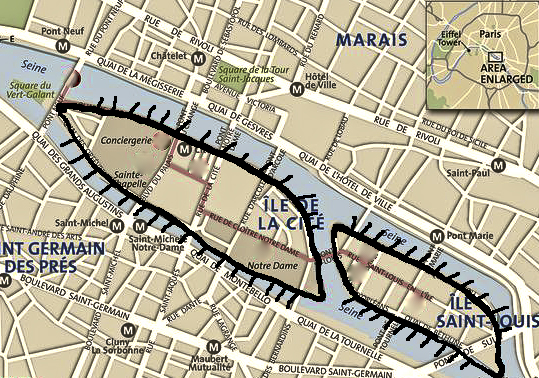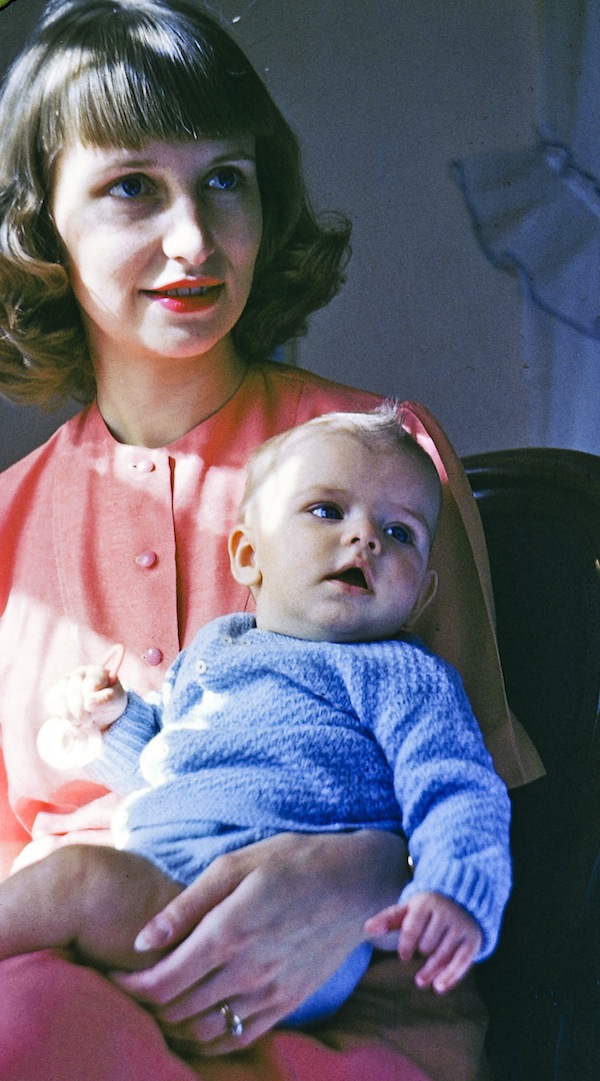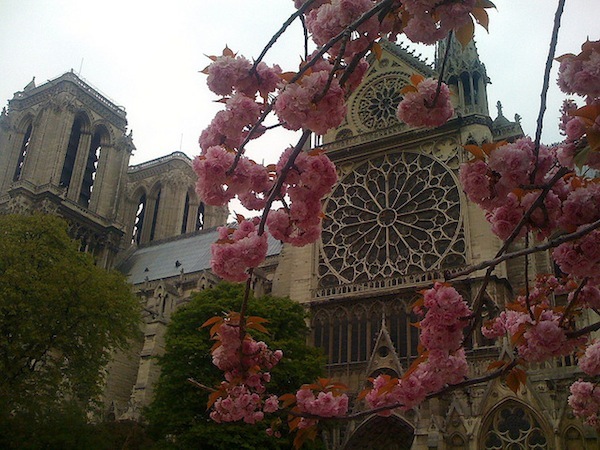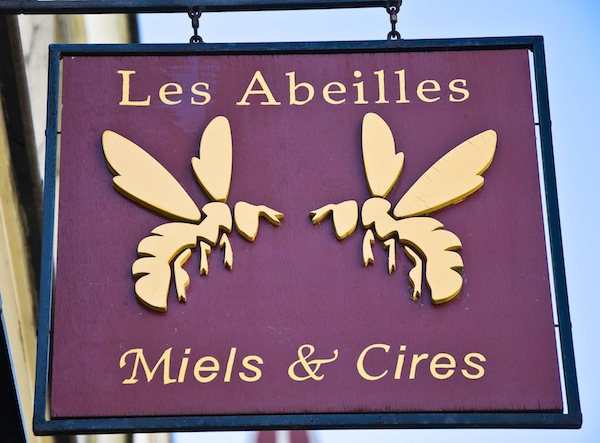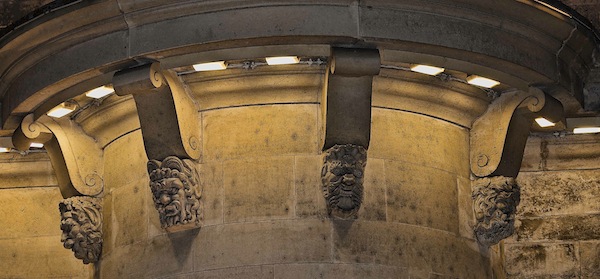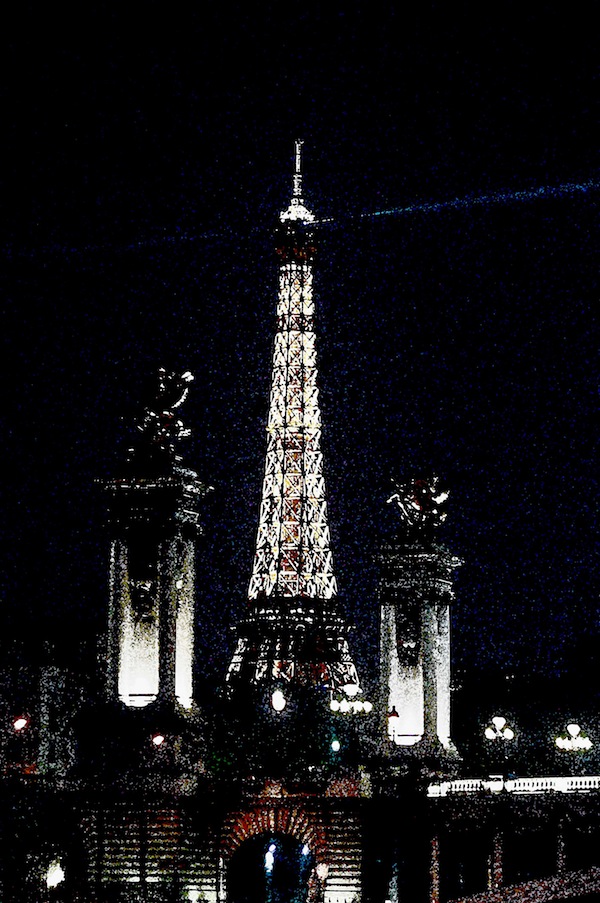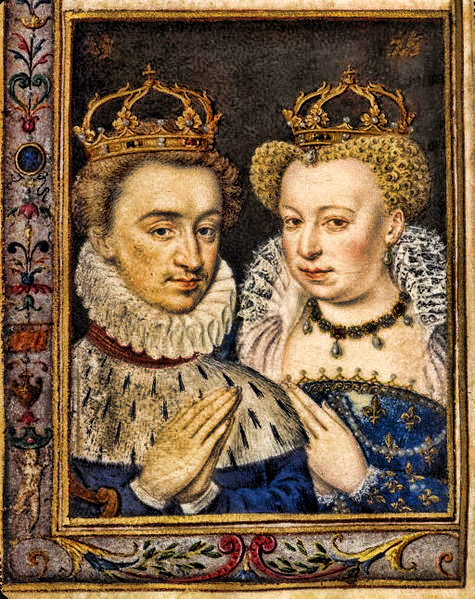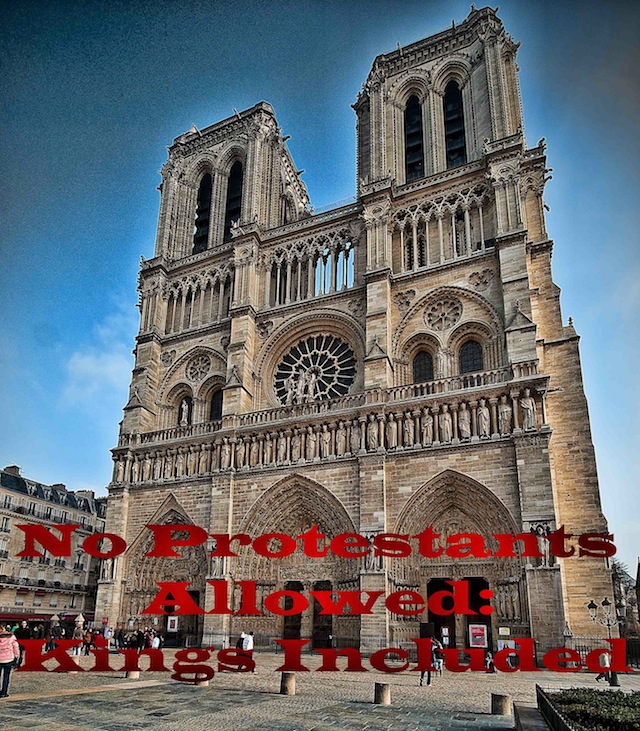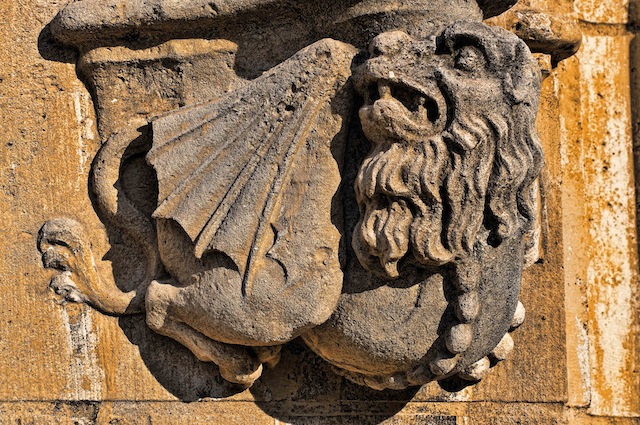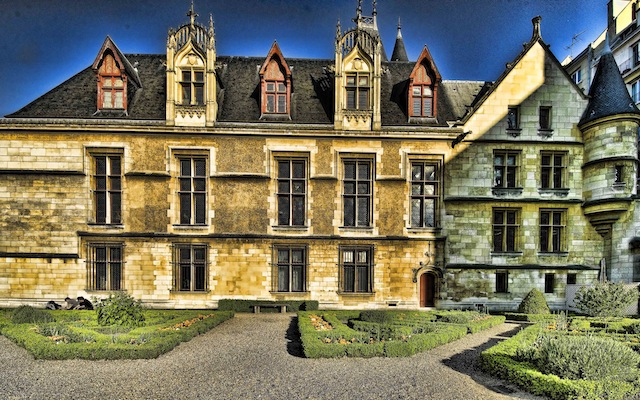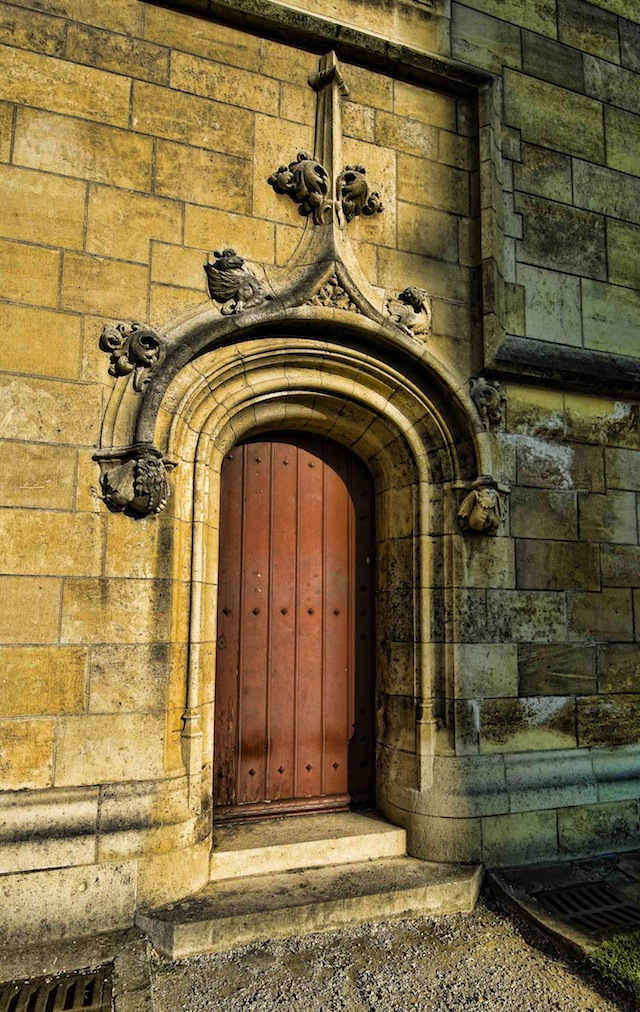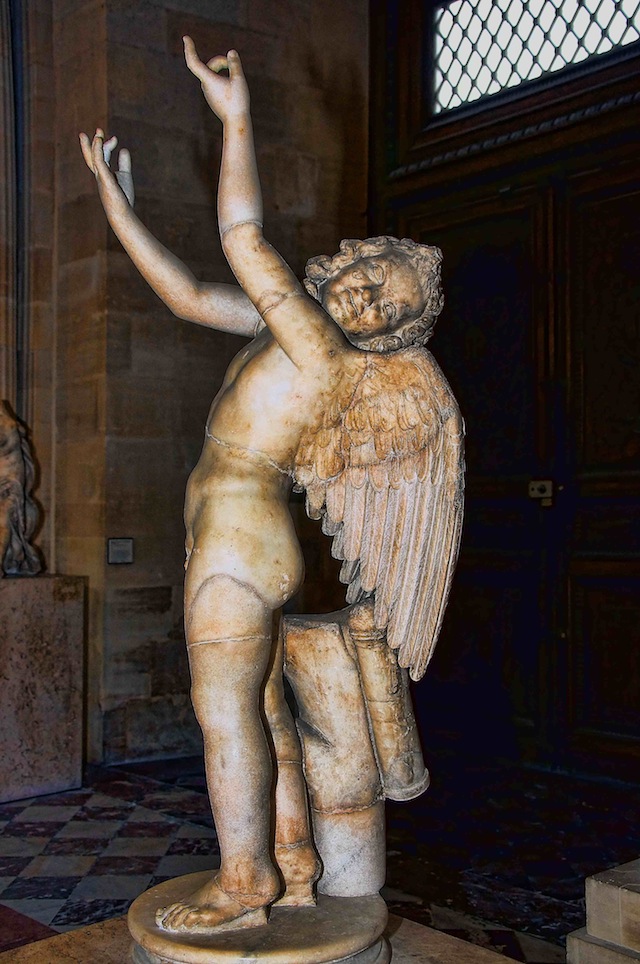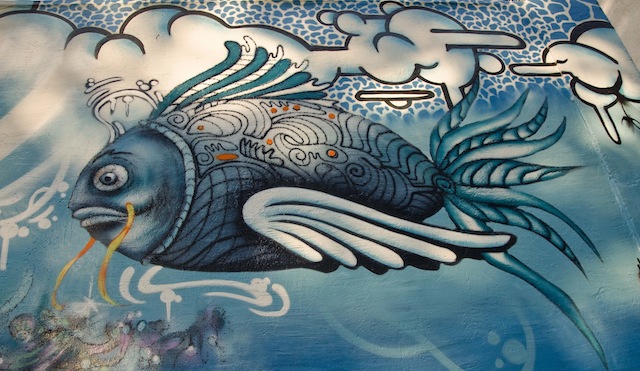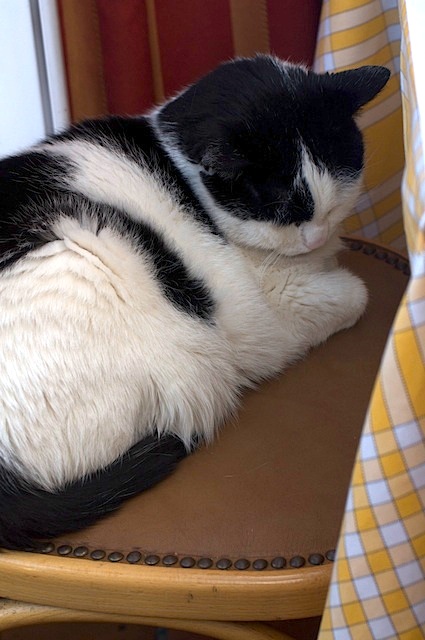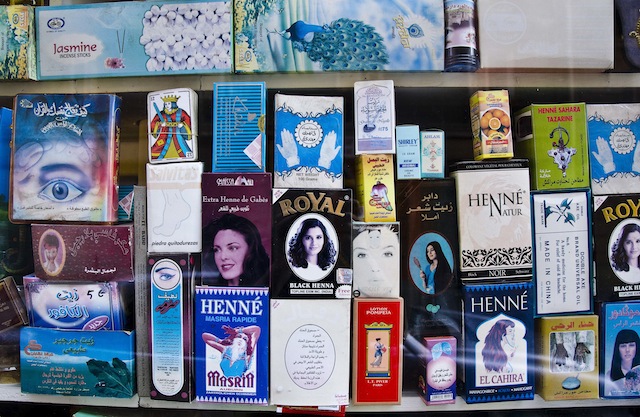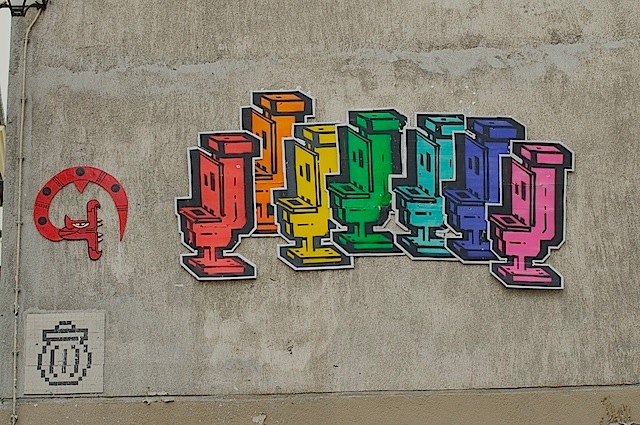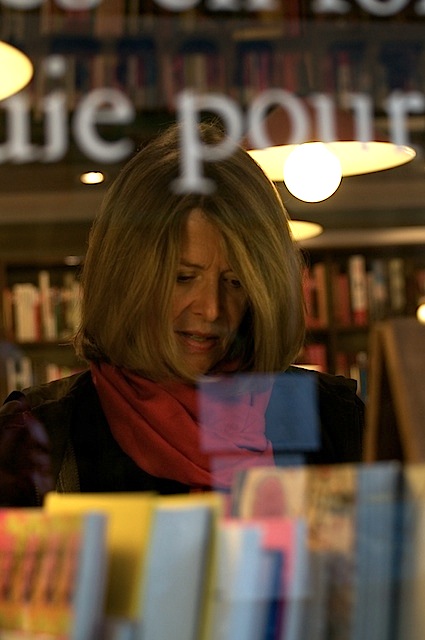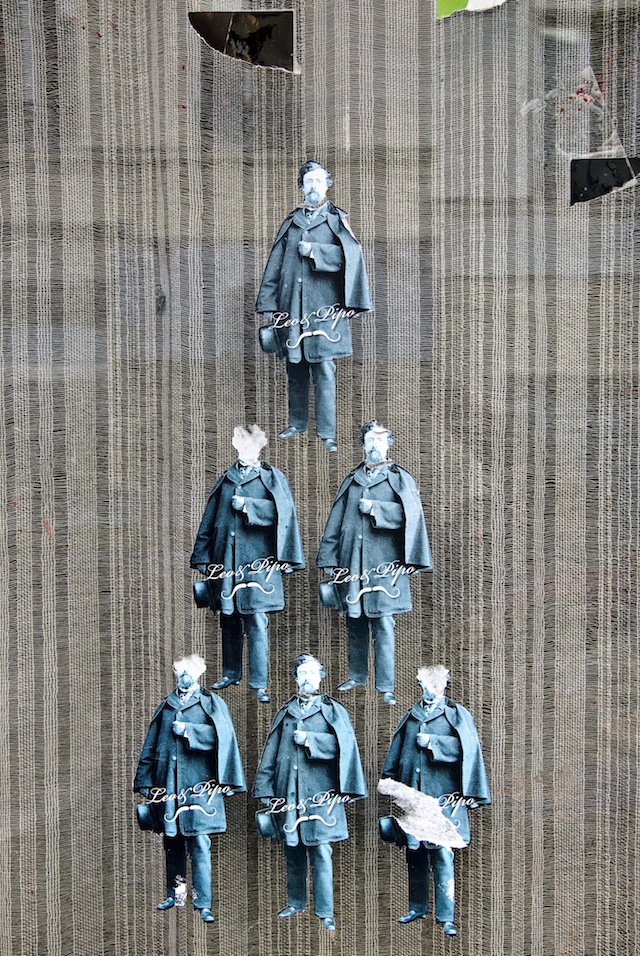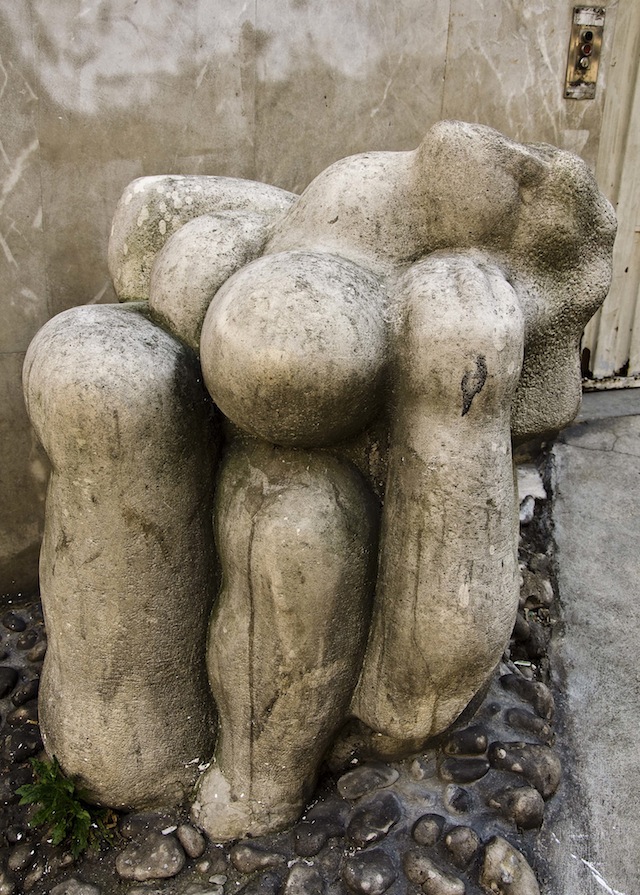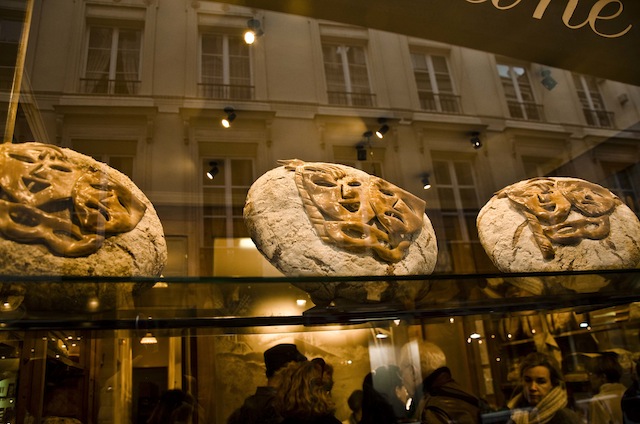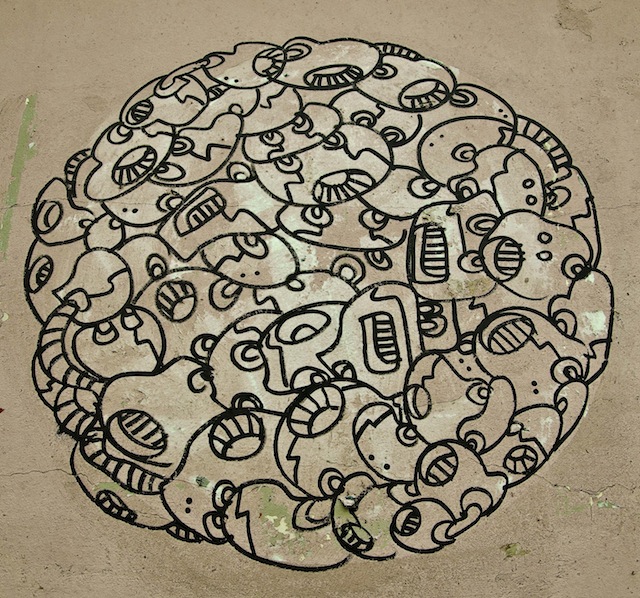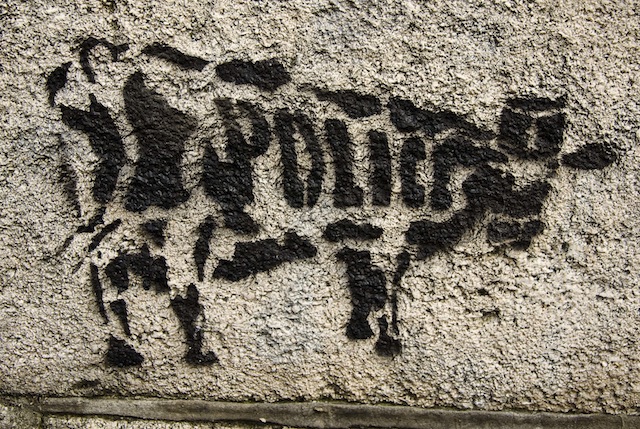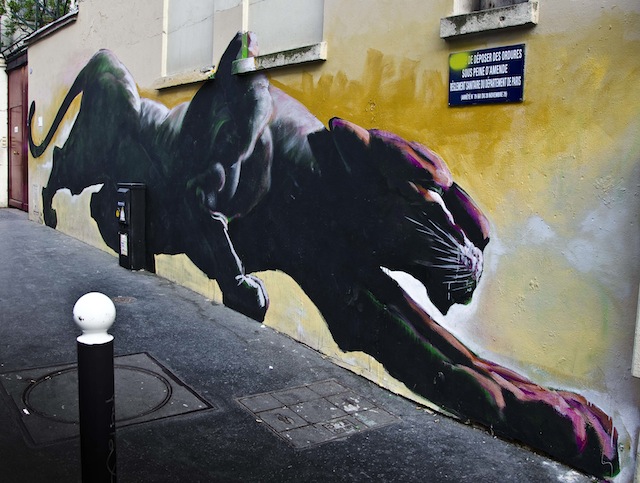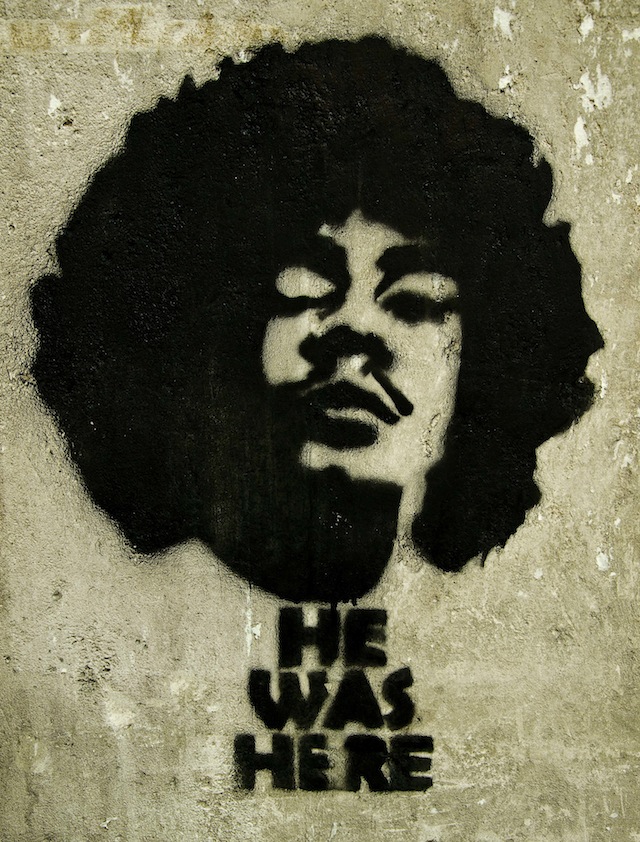Castor and Pollux
 05.10.2011
05.10.2011
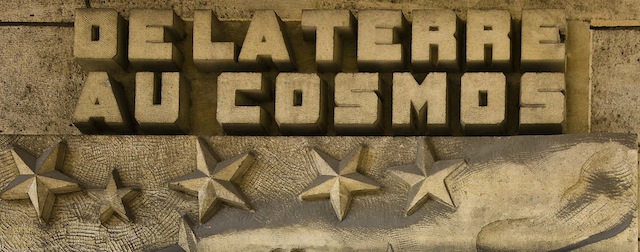
One of my favorite words, one of those words that exist in one language and are difficult to translate into another, is zeitgeist. In German this means “spirit of the time.” I think it applies not just to an era, a decade, but also a year, and even a day. As I write more about daily life in this Paris journal, I notice more and more that there is a spirit of the day, if you simply pay attention. Often you can’t see it until the day is done, and looking backwards, you notice the pattern, the leitmotif, the zeitgeist.
I usually make the 45-minute walk to see my acupuncturist in the seventh arrondissement. Wednesday, I needed to write a bit longer, so for the first time I took the Métro.
Crossing rue des Écoles, a block from our house, a flock of school children were crossing in front of me. A couple of young women in their 20’s were herding the children across the street. Many of them wore little backpacks, and most of them went two-by-two up Cardinal Lemoine. As I passed, I heard their musical chatter, and then at the front of the flock, saw a couple of boys holding hands. They were close friends, speaking perfect French, little brooks of sparkling clarity. I asked the dark-haired young woman how old the children were.
“Quatre et Cinq,” she said.
Adorable, yet, descending the steps to the Métro, I felt melancholy. These four-year-olds and five-year-olds spoke far better French than I would ever speak.

* * *
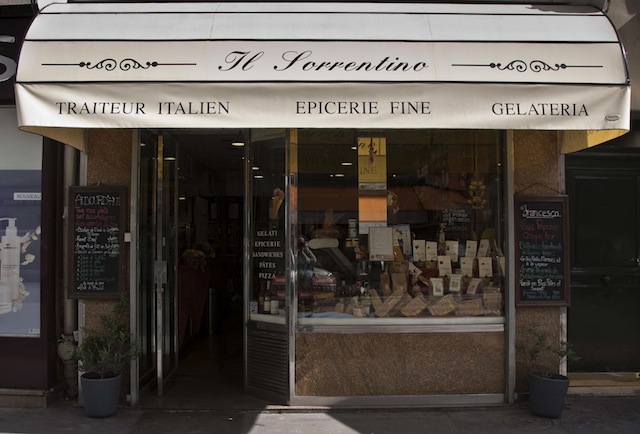
I'm always hungry after my acupuncture session, so my ritual is to stop at the Italian trattoria on rue de Sèvres, and have a little pasta or fish. Tonight the Coquilles Saint-Jacques looked exquisite. A place must have ravishing food for me to be willing to stand up at a counter while I’m eating. Here, I stand.
The owner/chef was big-bellied, stolid with black hair and a slow manner. His assistant, a young woman with short red hair and a tattoo on her neck, which after much searching between us in French, English and Italian, I figured out was an elf, had a dancing humor in her eyes and mouth—like a dolphin…or an elf! Just seeing her expression made me happy.
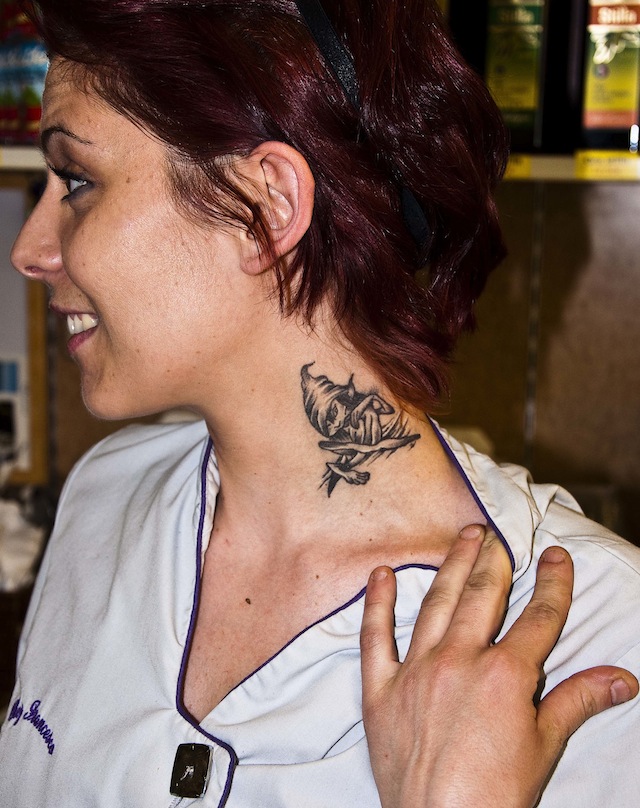
As I waited for my Coquilles Saint-Jacques, I stood behind two boys, maybe twelve years old. They reminded me of the four- or five-year-old boys holding hands, the closeness and innocence of young boys who aren’t embarrassed to show their affection towards one another. They were asking the chef about various dishes with such gastronomic confidence, I was sure they could only be French. I could see how close they were, how similar their body language and voices. I felt a great love towards the two of them, the innocence of boys before the self-consciousness of adolescence begins. And there was some quicksilver lightness about them that was quintessentially French.
Ahh, my Coquilles Saint-Jacques was ready. I placed it on the counter and lifted my fork.
“Pardon,” I heard, and glanced over to see the shorter of the two boys looking up at me with such sweetness in his face that I put down my fork.
“Do you mind,” he asked delicately in French, “if we ask you what nationality you are?”
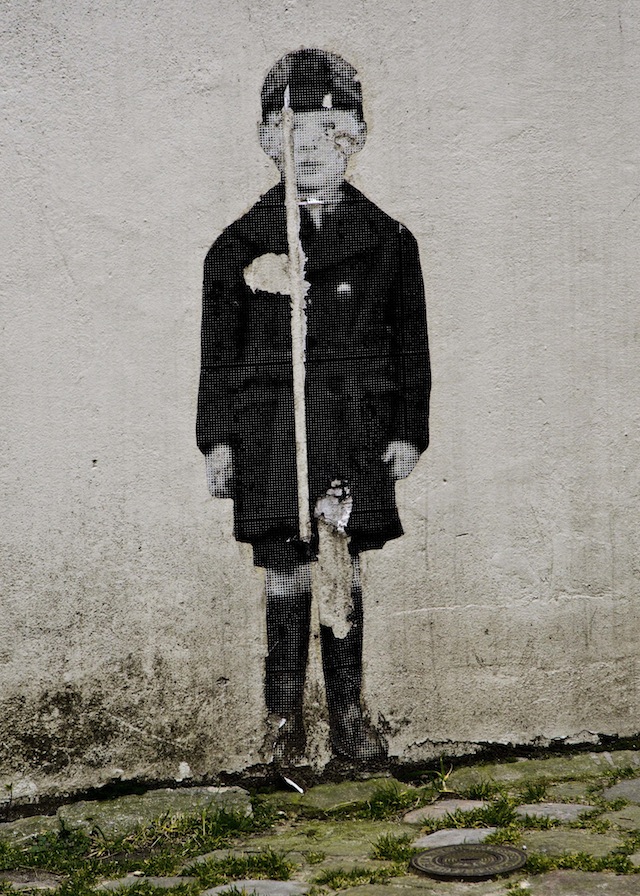
Oh good, a game. “You must guess!” I said.
The two boys jumped in. “French?” said the smaller one. (That instantly wiped out the melancholy of listening to the children earlier.)
“Noooo,” I said.
“German!” said the taller boy.
“No.”
“Italian?”
“No.”
The red-haired girl was laughing quietly behind the counter, a Celtic elf.
“Polish!”
“Noo.”
“Spanish!” said the taller one, who stood slightly behind the shorter. Both had John Lennon glasses on, and were slender and sensitive and smart.
I shook my head. “You two seem like twins,” I said. “But not identical.”
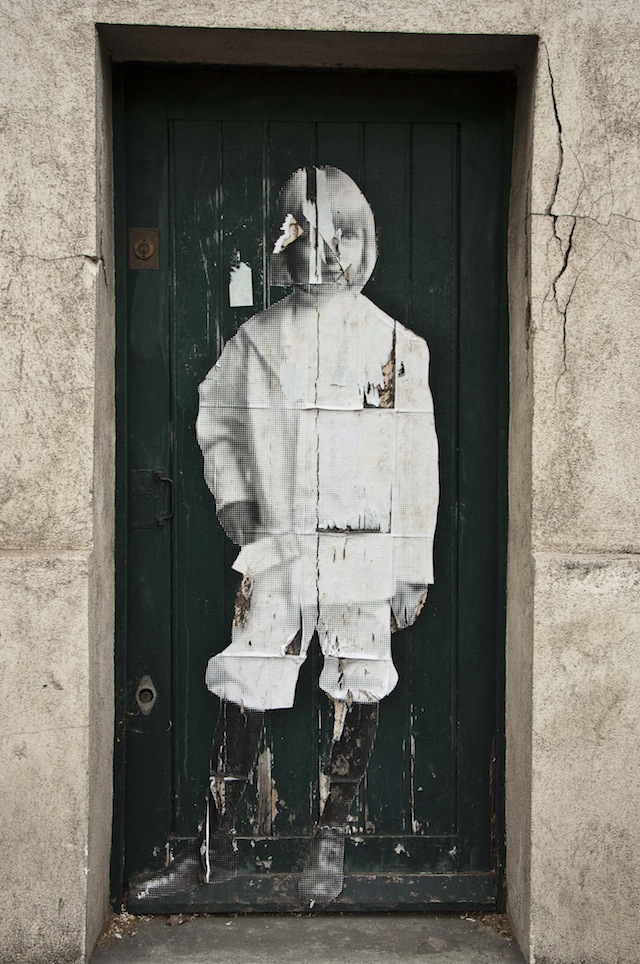
“We’re brothers,” said the shorter one.
“And you’re how old?”
I am thirteen.”
“And I am eleven,” said the taller.
“And what is your age difference?”
“18 months!” said the older and shorter.
“Just like my sister and me. We are very close, just like you two.”
They both nodded, Yes, we are.
“Portuguese!” said the younger one.
“Nooo.”
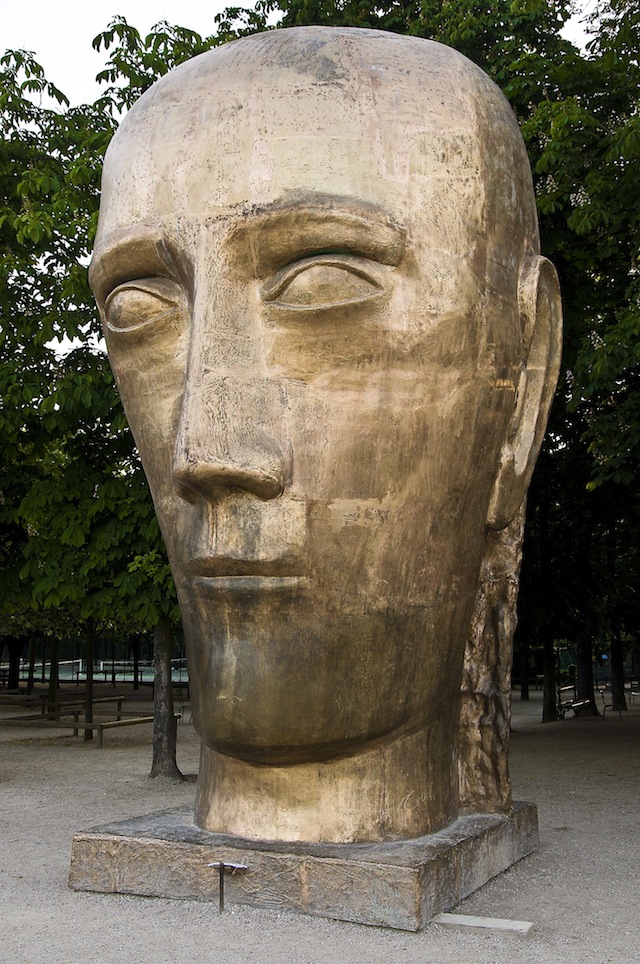
“Wait, let’s slow down,” said the older. “Let’s look at the physiognomy of her face.”
He pondered. “You’re not Chinese.”
“You can see that I’m not,” I said.
“English?”
“Now you’re getting warmer. Some of my ancestors were English long ago.”
The older one looked hesitant. “You won’t get angry if I ask you something?”
“No,” I said.
“I don’t think you’re American because you aren’t obese.”
I laughed. “Well, you’re right and you’re wrong. I am American. And you’re right, there are more obese Americans than French.”
“Because of the fast food?” asked the older.

“Maybe, partly. Do you live in Paris?”
“Yes, we are Parisian.”
“You walk a lot here, so almost no one is fat.”
“Don’t people walk in the United States?”
“Yes, but not as much. We drive a lot. And not everyone is fat. And Americans have many wonderful qualities.”
“Like what?” He asked the question with great delicacy, signaling me that he wasn’t asking this as a challenge, but was just curious.
“Oh, energy, exuberance, spontanei—” I couldn’t get the word out in French.
The younger brother tried one translation, and the older brother corrected him. “No, she means spontaneity.”
The older brother was doing all the interviewing now. I thought of my sister, Jane, and how close we were at these boys’ age, and still are. Also how when we were children, I talked too much, so that she talked too little. Though she’s certainly made up for it since.
“Well,” said the older brother, “you see, we were only thinking of Europe.”
The younger one nodded.
They both noticed that my Coquilles Saint-Jacques was getting cold, and said goodbye. Then turned around at the door and asked, “Do you live in this neighborhood?”
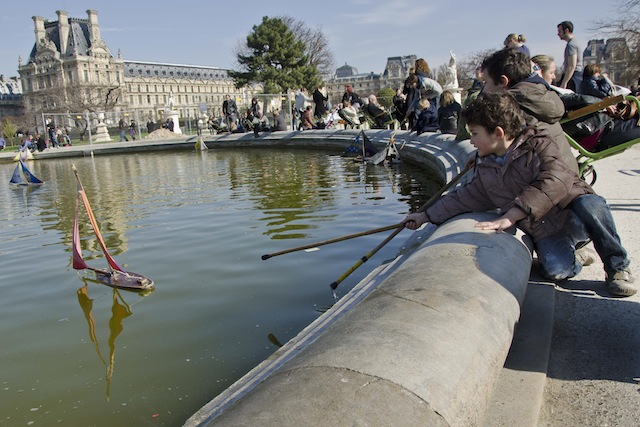
“No, I don’t,” I said.
“How often do you come back?”
“Every other Wednesday, about this time. And I always come here for dinner.”
“Well, we’ll see you back here then,” he said, and they turned to go. “Arrivederci,” they called to the Italians behind the counter and slipped out into the street.
“They were adorable!” said elf girl.
“Weren’t they?” I said.
The dish was amazingly good. I’d bring some home for Richard. Plus some of that risotto with lemon.
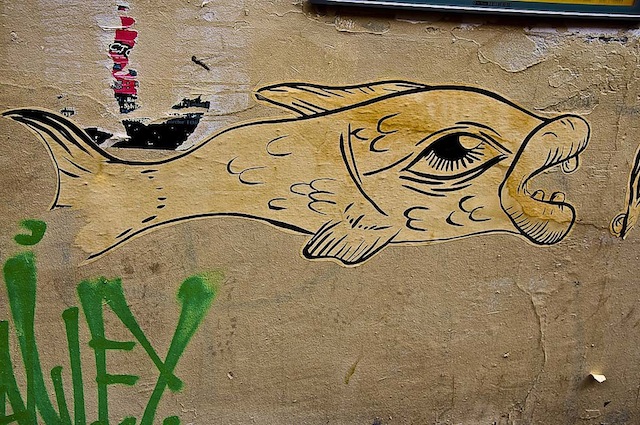
I ate and thought about these two twin-like brothers, and earlier, the two four or five-year-olds holding hands. The two older boys had such a quicksilver intelligence and sensitivity. What empathy in a boy that age. He knew that a disparaging comment about Americans could very well hurt my feelings, even if it didn’t apply to me. They were sensitive enough to realize that people identify with their nationality and where they live. I thought of adults we know from other parts of the country who didn’t hesitate to make rude remarks about Los Angeles when we lived there.
They made me think of the Celtic roots of French culture, a heritage that traveled up from Crete and Greece through Spain and France and as far north as England. The courtesy, the light intelligence and spiritual sensitivity, it runs through La Chanson de Roland, the troubador tales, Chaucer, Blake, and up to the present time; it is evident in democratic ideals and the courteous treatment of women.
Later, at home, Richard wolfed the Coquilles Saint- Jacques and agreed that they were superb. I looked up the astrological aspects that day, looking for the pattern, the zeitgeist, and saw that the moon was in Gemini. The Dioscuri, the Twins of the zodiac, are ruled by Hermes, who in ancient Egypt was the god Thoth. An ibis-headed god, he was the scribe, the magician, the poet, the one who named things.
In Greek myth, the twins were brothers, boxers and horsemen, who so loved each other that when Castor died, Pollux asked Zeus to let him share his own immortality with his twin, and they were transformed into the constellation of Gemini.
Mercury/Hermes was the favorite god of the Celts, a tribe who were fond of magic and poetry. And these twin-like brothers seemed to me to appear suddenly (as Hermes always does) to offer some magic words: do not despair. You haven’t lost your voice here in France--that was a fine conversation. And making French friends may not be so difficult after all.
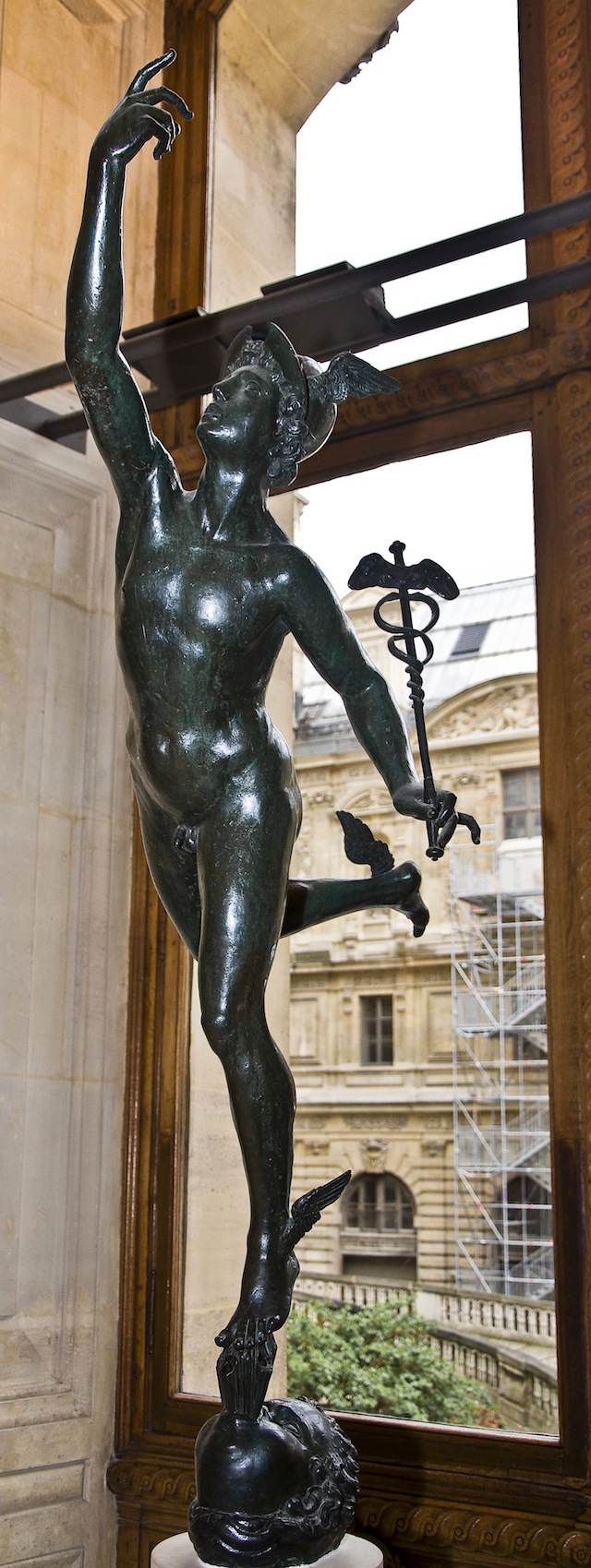
 Americans,
Americans,  Celts,
Celts,  French culture,
French culture,  children,
children,  food,
food,  friendship,
friendship,  mythology,
mythology,  twins,
twins,  zeitgeist in
zeitgeist in  Paris Life
Paris Life 

